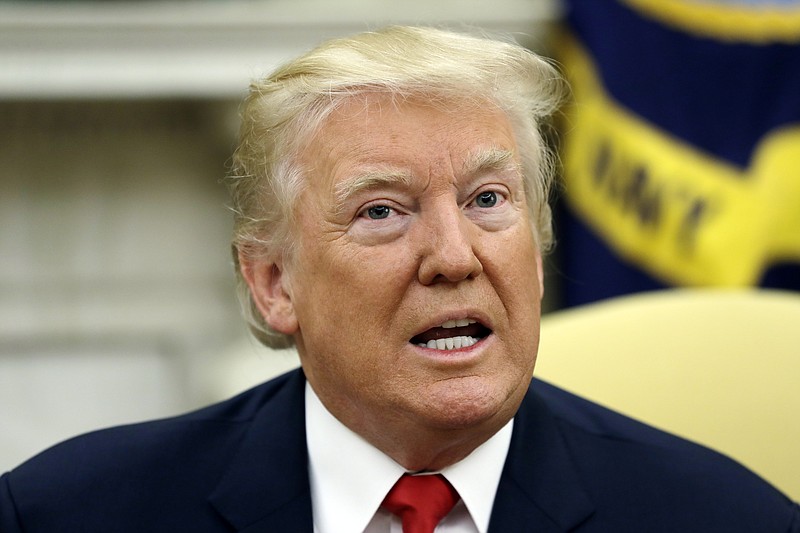With Steve Bannon out of the White House, it's clearer than ever that President Donald Trump's promise to be a populist fighting for ordinary workers was worth about as much as any other Trump promise - that is, nothing. His agenda amounts to the conventional Republican strategy of taking from struggling families to give to the rich, while distracting lower-income whites by attacking Those People.
At first sight, however, the Trump version of this strategy doesn't seem to be going very well. The attempt to repeal Obamacare was almost a caricature of trickle-down policy - take health coverage away from 20-plus million Americans while cutting taxes on a handful of wealthy individuals.
The next item on the agenda, tax "reform," may not fare much better. I use scare quotes because a true reform, reducing some tax rates but making up for the lost revenue by closing loopholes, was never going to happen. Straight-out tax cuts, which benefit corporations and the wealthy while blowing up the deficit, might still go through, but even that looks doubtful.
So is the Trump agenda dead? Not necessarily, because trickle-down has never been the whole story of the Republican assault on workers.
When you step back and take the long view on trickle-down policies, what you realize is that Trump's legislative failure is more the rule than the exception. The election of Ronald Reagan was supposed to have set America on a path toward lower taxes and smaller government - and it did, for a while. But those changes have largely been reversed.
According to the Congressional Budget Office, back in 1980 the top 1 percent paid 33 percent of its income in federal taxes. Under Reagan, that share briefly fell below 25 percent. But as of 2013, the most recent year covered, Obama's tax hikes had brought federal taxes on the 1 percent back up to 34 percent of income.
What about safety net programs? Some were savagely cut - but others have grown, a lot. Take Medicaid, which in 1980 covered only 7 percent of nonelderly Americans. Today that number is up to 21 percent.
Looking only at taxing and spending, then, one might conclude that the conservative economic agenda has largely failed.
But here's the thing: While the rich still pay taxes and the safety net has in some ways gotten stronger, the decades since Reagan have nonetheless been marked by vastly increased inequality, with stagnating wages for most, but soaring incomes for a tiny elite.
To understand what happened to us, and in particular to American workers, you need to look at policy - and especially the kind of policy that often flies under the media's radar.
Take one example, covered a few months ago in a striking Times essay: the decline in the fortunes of truck drivers, whose pay used to make them members of the middle class. No more: Their real wages have fallen about a third since the 1970s, with most of the decline taking place during the Reagan years.
Now, globalization and technology haven't destroyed trucking jobs; on the contrary, the industry is facing a labor shortage.
What happened to truckers was, basically, the collapse of their bargaining power due in part to a changed ideological climate that encouraged private employers to fight unionization, and in part to deregulation that undercut the position of unionized firms.
Which brings us back to Trump and the effect he'll have on America's working class. Right now it looks as if he may have much less effect on taxing and spending than most people expected. But other policies, often made administratively by federal agencies rather than via legislation, can matter a lot.
Progressives shouldn't celebrate too much over Trump's legislative failures. As long as he's in office, he retains a lot of power to betray the working people who supported him.
And in case you haven't noticed, betraying those who trust him is a Trump specialty.
The New York Times
